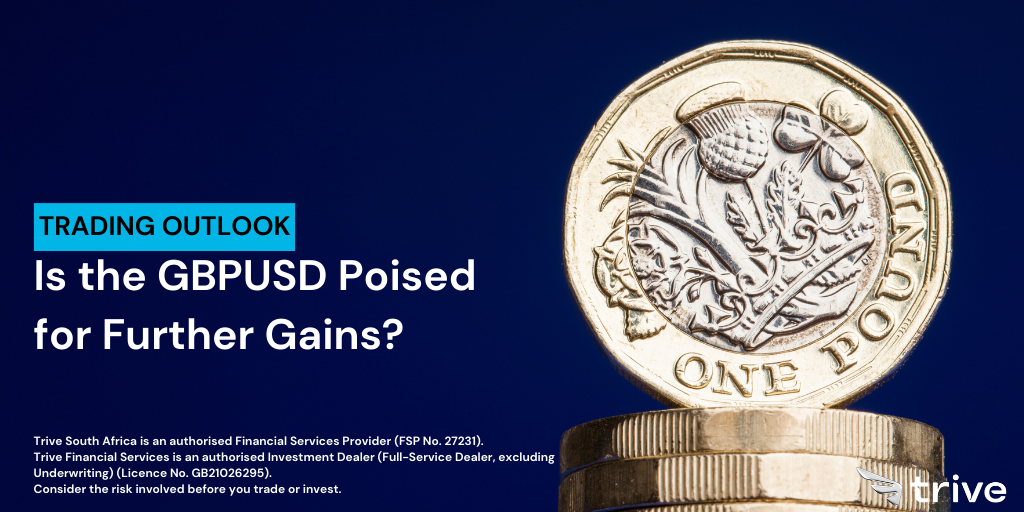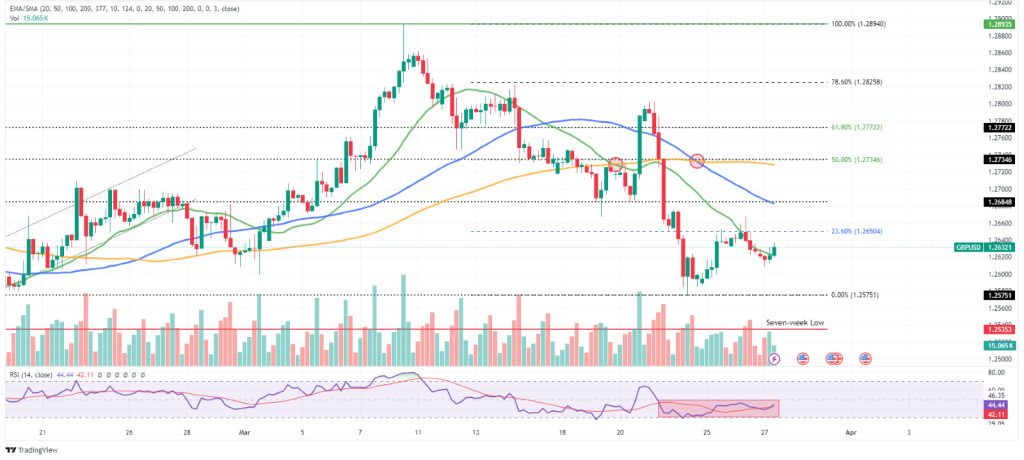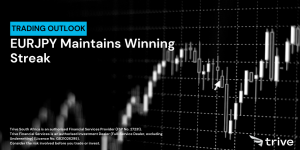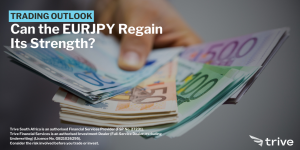
The British Pound (GBP) encountered downward pressure, slipping to approximately $1.26, marking its lowest level since February 19th. This decline followed stagnant UK consumer spending in February and remarks by Bank of England Governor Andrew Bailey hinting at potential interest rate cuts in 2024. Despite expectations of a 0.3% decline, UK retail sales remained flat last month, contrasting with the significant 3.6% surge in January. Governor Bailey acknowledged positive signs of decreasing inflation but stressed the necessity for more certainty in managing price pressures. The Bank of England, with an 8-1 vote, maintained borrowing costs at a 16-year high of 5.25%, despite recent data showing a decline in inflation to its lowest point in nearly two-and-a-half years, albeit remaining above the bank’s target level.
In contrast, the sterling’s resilience over the past six months has been partially attributed to expectations that the Bank of England will be slower to cut rates compared to the Federal Reserve and the European Central Bank. However, recent shifts in market sentiment suggest a possibility of the Bank of England being the first among the three to cut rates. Despite this, the markets have not abandoned the pound entirely, with speculators trimming their bullish sterling position. Additionally, the pound may find support in historical trends, as April traditionally represents its strongest month of the year in terms of performance.
Technical Analysis
The 4-hour shows that the market sentiment surrounding GBP remains cautious, reflected in the slightly upward-sloping but sub-50 RSI (44.44). The GBPUSD price currently sits at 1.26231, attempting to hold above the 20-SMA (green line). This suggests a potential short-term bounce, although the price remains below the 50-SMA (blue line) and 100-SMA (orange line), indicating a broader downtrend.
Short-term trading opportunities may arise towards the support at 1.25751 if the recovery falters. A breakdown below the 1.25751 support level could confirm the bearish momentum, which could see the price fall towards the seven-week low of 1.25353 in the near term. A hawkish shift from the Fed or weak UK GDP data could exacerbate the decline.
However, a sustained break above the 23.60% Fibonacci retracement level could bring the 1.26848 into focus in the coming sessions. A sustained break above 1.26848 could trigger a bullish move towards the 50.00% Fibonacci retracement level (1.27346) and potentially the 61.80% Fibonacci retracement level (1.27722). This scenario would be supported by a dovish surprise from the Federal Reserve or a strong rebound in UK GDP data.

Summary
The GBPUSD outlook hinges on the interplay between central bank policy and economic data. A dovish pivot from the Fed and positive surprises from the UK data could propel GBP higher. However, a hawkish Fed stance and weak UK GDP figures could see GBP resume its downward trajectory. The price action around the 20-SMA and the upcoming GDP releases will be crucial in determining the near-term direction of GBPUSD.
Sources: TradingView, Trading Economics, Reuters, Bloomberg.
Piece written by Mfanafuthi Mhlongo, Trive Financial Market Analyst
Disclaimer: Trive South Africa (Pty) Ltd (hereinafter referred to as “Trive SA”), with registration number 2005/011130/07, is an authorised Financial Services Provider in terms of the Financial Advisory and Intermediary Services Act, 37 of 2002. Trive SA is authorised and regulated by the South African Financial Sector Conduct Authority (FSCA) and holds FSP number 27231. Trive Financial Services Ltd (hereinafter referred to as “Trive MU”) holds an Investment Dealer (Full-Service Dealer, excluding Underwriting) Licence with licence number GB21026295 pursuant to section 29 of the Securities Act 2005, Rule 4 of the Securities Rules 2007, and the Financial Services Rules 2008. Trive MU is authorized and regulated by the Mauritius Financial Services Commission (FSC) and holds Global Business Licence number GB21026295 under Section 72(6) of the Financial Services Act. Trive SA and Trive MU are collectively known and referred to as “Trive Africa”.
Market and economic conditions are subject to sudden change which may have a material impact on the outcome of financial instruments and may not be suitable for all investors. Trive Africa and its employees assume no liability for any loss or damage (direct, indirect, consequential, or inconsequential) that may be suffered. Please consider the risks involved before you trade or invest. All trades on the Trive Africa platform are subject to the legal terms and conditions to which you agree to be bound. Brand Logos are owned by the respective companies and not by Trive Africa. The use of a company’s brand logo does not represent an endorsement of Trive Africa by the company, nor an endorsement of the company by Trive Africa, nor does it necessarily imply any contractual relationship. Images are for illustrative purposes only and past performance is not necessarily an indication of future performance. No services are offered to stateless persons, persons under the age of 18 years, persons and/or residents of sanctioned countries or any other jurisdiction where the distribution of leveraged instruments is prohibited, and citizens of any state or country where it may be against the law of that country to trade with a South African and/or Mauritius based company and/or where the services are not made available by Trive Africa to hold an account with us. In any case, above all, it is your responsibility to avoid contravening any legislation in the country from where you are at the time.
CFDs and other margin products are complex instruments and come with a high risk of losing money rapidly due to leverage. You should consider whether you understand how these products work and whether you can afford to take the high risk of losing your money. Professional clients can lose more than they deposit. See our full Risk Disclosure and Terms of Business for further details. Some or all of the services and products are not offered to citizens or residents of certain jurisdictions where international sanctions or local regulatory requirements restrict or prohibit them.




